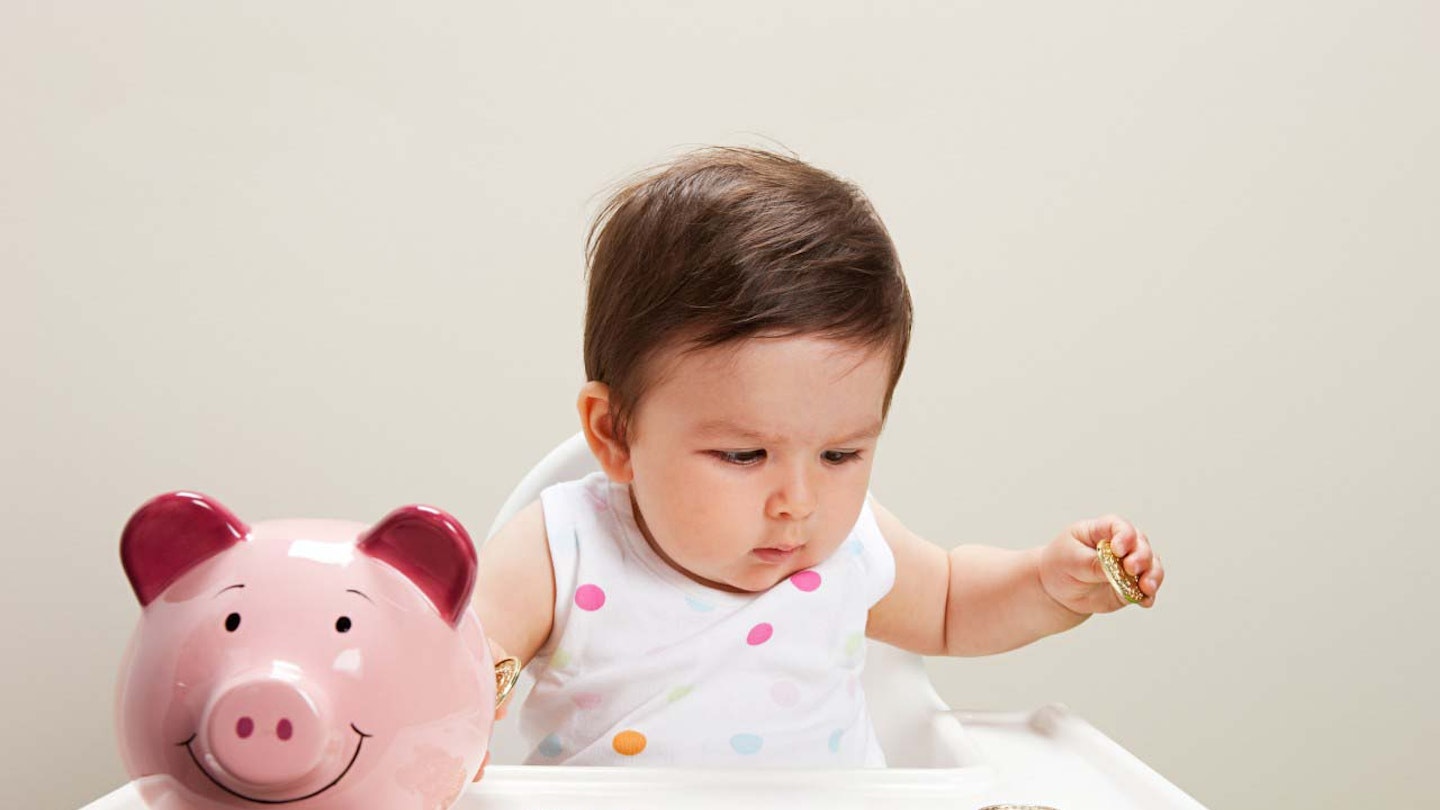Your baby is never too young to have his own bank account, and adding to it now could set him up with a nest egg for when he’s older
Clearly bringing up a baby comes with it’s own set of expenses, but if you can find a few spare £££ each month to put aside for him, it can really add up.
And with recent research showing that, on average, parents in the UK are putting aside £42.45 a month for each child [Source: L&G Investments], his savings will soon start to build up. That's just £20 per month each from you and your partner, but by the time your child is 18, you could save £8,640 - and that's not including any interest that's earned on it.
Parents in the UK are putting aside £42.45 a month
‘It’s great to start saving regularly for your child and there are a few options you could consider,’ says Jane Symonds, from the Money Advice Service. ‘Regular savings accounts are offered by many banks and building societies.’ In most cases, your child can take out their money whenever they like, and some banks include a gift with the account, like a moneybox.
Savings accounts also provide somewhere for relatives and friends to make contributions for your child. ‘Each account will have terms and conditions that you should check, such as interest rates, minimum or maximum deposits, and withdrawal limits,’ says Jane.
Banks and building societies usually deduct 20% tax from the interest they pay on savings account. But as most children don’t have enough income to actually have to pay tax, you can reclaim this money back. Alternatively, you can get the interest paid in full without tax being taken off by asking your bank or building society for a HMRC Form R85 when you first set up the account.
How do I set one up?
‘To open any account you should check what documents are required but typically they will want to see proof of your child’s identity – ideally a passport or birth certificate – and proof of your address,’ says Jane.
The best thing to do is to set up a standing order for a regular deposit to come out of your account and into your baby’s, even if it’s just £10 a month. That way you won’t have to keep remembering to transfer money across each month.
What other savings options are there?
Many banks let you set up an account with as little as £1
Another way you can save money for your baby is by setting him up with a Junior ISA. Much like adult ISAs, you can get both cash and stocks and shares ISAs. The total amount that parents, friends and family can save into either one or both accounts is £3,840 per tax year until 1 July 2014, at which point it rises to £4,000.
‘Junior Cash ISAs work just like savings accounts but are tax free, which means that you won't owe the taxman anything from the interest you earn on it,’ says Jane.
Junior stocks and shares ISAs let you buy shares, bonds and other eligible investments on behalf of your child. The value of these investments can go down as well as up, so are considered potentially more lucrative, but also more risky.
While a parent or guardian must open the account, the money belongs to the child. But they can only withdraw the money once they turn 18 years old.
Whichever type of savings account you decide on, saving for your little one today will make for a worthwhile gift for his future.
